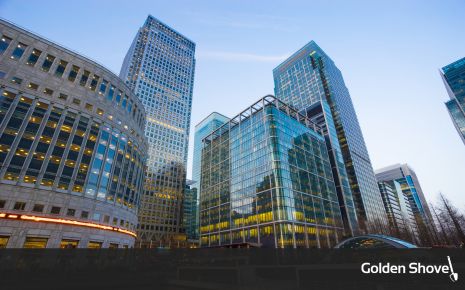Navigating the New Normal: The Delicate Balance Between Remote Work and Office Returns

4 Mar 2024
News, Workforce
The global pandemic has irrevocably changed the landscape of work, catalyzing a shift toward remote work that might have otherwise taken decades to materialize. This shift, while initially born out of necessity, has opened up a Pandora’s box of possibilities, challenges, and questions about the future of work. Economic developers tasked with fostering economic growth and resilience, are now considering how to balance the benefits of work-from-home (WFH) practices with the traditional model of office-centric work. This balance is crucial not only for the well-being of the workforce but also for the broader economic ecosystem that supports and is supported by the presence of workers in physical office spaces.
The Advantages of WFH
Remote work has demonstrated significant benefits, including increased flexibility, improved work-life balance, and reduced commuting times. For many, the ability to work from anywhere has opened up new opportunities, leading to a more inclusive and diverse workforce. From an economic development perspective, the rise of remote work can stimulate growth in less-developed areas, reduce environmental impacts from commuting, and spur innovation in digital technologies.
However, embracing WFH also requires addressing its downsides, such as potential isolation, challenges in maintaining company culture, and the digital divide that may exclude parts of the population from participating in the remote workforce.
Reaffirming the Office’s Role
Offices serve as crucial nodes of social interaction, collaboration, and innovation. They play a significant role in urban economic ecosystems, supporting a wide range of businesses and services. The vibrancy of city centers largely depends on the foot traffic generated by office workers. Hence, a wholesale shift to remote work could have detrimental effects on urban economies, particularly sectors like retail, hospitality, and public transportation.
Moreover, certain tasks and processes benefit from in-person interaction, suggesting that a completely remote workforce might not be suitable for every organization or industry.
Crafting a Balanced Approach
Economic developers are uniquely positioned to guide the transition to a more flexible work environment while ensuring the vitality of urban centers. The solution likely lies in a hybrid model that combines the best of both worlds, allowing employees to split their time between remote work and office attendance. This model can reduce office space requirements, allowing businesses to rethink and repurpose their physical spaces for more collaborative and less density-focused uses.
Solutions for Economic Developers
To support this transition, economic developers can implement a variety of strategies:
#1 Infrastructure Investment
Enhancing digital infrastructure to support remote work across all regions, ensuring that broadband access is equitable. Similarly, reimagining public transportation systems to accommodate flexible commuting patterns can make hybrid working more feasible.
#2 Urban Planning
Redesigning city centers to be more multifunctional, with spaces that support work, leisure, and living. This could include the development of co-working spaces, green parks for outdoor meetings, and pedestrian-friendly zones that encourage foot traffic.
#3 Economic Incentives
Providing tax incentives or grants to businesses that support hybrid working models can encourage more rapid adoption of flexible work arrangements. Similarly, supporting small businesses affected by changes in office worker patterns can help them transition to new business models.
#4 Community Building
Facilitating the Development of professional networks and communities within local areas to replicate the social and collaborative aspects of office work in a remote setting. This can help mitigate the isolation that some remote workers experience.
#5 Education and Training
Offering training programs to both employers and employees on managing remote teams and optimizing productivity in a hybrid model. This includes fostering digital literacy, leadership skills for remote management, and strategies for maintaining work-life balance.
#6 Health and Well-Being Initiatives
Implementing programs that support mental health and well-being for remote workers, including access to online fitness and wellness resources, mental health days, and virtual social events to strengthen team bonds.
#7 Innovative Real Estate Solutions
Encourage the repurposing of office spaces into shared workspaces or community hubs that can be used by multiple companies. This approach can keep urban centers lively and reduce the overhead costs for businesses.
#8 Policy Advocacy
Working with policymakers to ensure that labor laws and regulations are adapted to the realities of remote and hybrid work, including issues related to occupational safety, taxation, and workers’ rights in a remote context.
Looking Ahead
The future of work is not a binary choice between remote and office-based models but a spectrum of possibilities that can be tailored to meet the needs of businesses, employees, and communities. Economic developers have a critical role in shaping this future, ensuring that it leads to sustainable economic growth, inclusive opportunities, and vibrant, resilient communities.
By embracing flexibility, investing in infrastructure, and fostering innovation, we can navigate the challenges posed by this transition and seize the opportunities it presents. The goal is not just to adapt to the changes brought about by the pandemic but to envision and create a future of work that is more dynamic, equitable, and fulfilling for everyone involved.
More Topics





